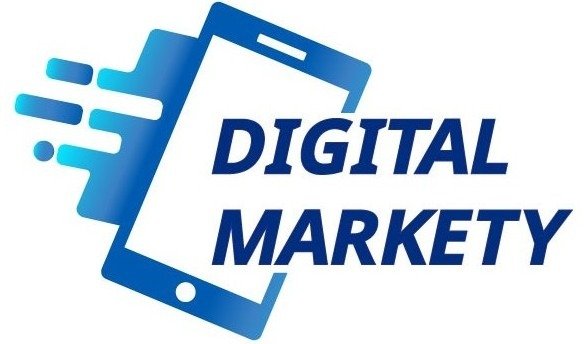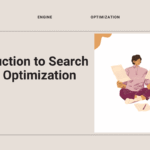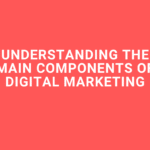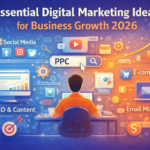
Exploring a Career in Digital Marketing Opportunities and Insights
Understanding Digital Marketing
Exploring a Career in Digital Marketing Opportunities and Insights. In today’s interconnected world, it has become a cornerstone of modern business strategies, enabling companies to reach a larger audience and engage with customers effectively. The significance of digital marketing stems from its ability to leverage data and insights to tailor campaigns, measure performance, and maximize return on investment.
Table Of Content
- The Current Job Market for Digital Marketers
- Key Skills Required for Success in Digital Marketing
- Educational Paths to Becoming a Digital Marketer
- Different Roles Within Digital Marketing
- Challenges Faced in a Digital Marketing Career
- The Future of Digital Marketing
- Networking and Professional Growth in Digital Marketing
- Conclusion: Is Digital Marketing the Right Career for You?
There are several crucial channels within the realm of digital marketing, each playing a unique role in shaping a brand’s online presence. Search Engine Optimization (SEO) focuses on optimizing a website to rank higher in search engine results, thereby increasing visibility and organic traffic. Conversely, social media marketing involves creating and sharing content on platforms like Facebook, Instagram, and Twitter to engage audiences and foster relationships with consumers.
Content marketing complements these efforts by delivering valuable and relevant content aimed at attracting and retaining a clearly defined audience. This strategy not only enhances the brand’s reputation but also facilitates customer engagement and loyalty. Email marketing remains a vital tool in reaching potential and existing customers directly, providing updates, promotions, and personalized communication that can lead to conversions.
Another essential component of digital marketing is Pay-Per-Click (PPC) advertising. This model allows businesses to place ads on search engines and social media platforms, ensuring immediate visibility to a targeted audience. By paying for each click, companies can drive traffic to their websites while maintaining control over budgeting and desired demographic reach.
In summary, digital marketing encompasses a wide array of channels that collectively enhance a brand’s presence online, ensuring it remains competitive in an increasingly digital marketplace. Understanding these elements is vital for anyone looking to embark on a career in digital marketing or support their business growth through innovative marketing strategies.
The Current Job Market for Digital Marketers
The landscape of the job market for digital marketers has experienced significant transformation over the past decade, driven primarily by the increasing reliance of businesses on online platforms for marketing and communication. A recent report indicates that the demand for digital marketing professionals has surged by approximately 50% since 2018, showcasing the essential role these specialists play in modern marketing strategies.
Exploring a Career in Digital Marketing Opportunities and Insights. According to the Bureau of Labor Statistics, the employment of marketing specialists, which includes digital marketers, is projected to grow by 10% from 2021 to 2031, a rate that is faster than the average for all occupations. This growth reflects a broader trend as more organizations recognize the importance of developing strong digital presences to connect with target audiences effectively. Companies are allocating more of their budgets to digital channels, thus creating a robust demand for skilled talent in various key areas.
Exploring a Career in Digital Marketing Opportunities and Insights. Digital advertising agencies have become primary employers of digital marketing professionals, seeking individuals adept in skills such as search engine optimization (SEO), pay-per-click (PPC) advertising, and social media marketing. Additionally, many companies are building in-house marketing teams, leading to a need for professionals who can integrate digital marketing strategies within broader business goals. Freelance opportunities are also on the rise; platforms like Upwork and Fiverr are filled with listings for digital marketing tasks, offering flexibility and the chance for professionals to work on diverse projects.
Exploring a Career in Digital Marketing Opportunities and Insights. The practicality of remote work has further opened avenues for digital marketers, allowing businesses to tap into a global talent pool. As organizations continue to navigate the complexities of digital landscapes, the demand for proficient digital marketing professionals is expected to remain strong.
Key Skills Required for Success in Digital Marketing
Exploring a Career in Digital Marketing. In the rapidly evolving realm of digital marketing, aspiring professionals must cultivate a variety of essential skills to ensure their success and competitiveness in the field. Among the most crucial are analytical thinking, creativity, technical proficiency, and strong communication abilities. Each of these skills contributes to a well-rounded digital marketer capable of navigating the complexities of online landscapes.
Analytical thinking is vital for digital marketers, as it enables them to interpret data effectively and make informed decisions based on insights derived from various metrics. Competence in analytics tools, such as Google Analytics, allows marketers to assess the performance of their campaigns, understand customer behavior, and identify opportunities for optimization. By honing this skill, professionals can craft targeted strategies that resonate with their audience.
Creativity is another foundational skill, as it fuels innovative marketing campaigns that capture attention and engage potential customers. Whether it involves developing eye-catching content, creating imaginative social media posts, or designing visually appealing graphics, a digital marketer’s ability to think outside the box can significantly enhance brand visibility and consumer interaction.
Moreover, technical proficiency is becoming increasingly important in digital marketing. Familiarity with various tools and platforms—ranging from social media management software to email marketing systems—equips marketers with the capabilities necessary to execute their strategies efficiently. This knowledge can be acquired through formal education, online courses, and practical application in real-world scenarios.
Staying updated with industry trends and tools is essential for all these skills. Exploring a Career in Digital Marketing. Continuous learning through reading articles, attending workshops, and participating in industry conferences ensures marketers remain at the forefront of the field. By actively engaging with ongoing developments.
Educational Paths to Becoming a Digital Marketer
Embarking on a career in digital marketing offers numerous educational pathways, catering to a variety of learning preferences and professional backgrounds. For those seeking academic credentials, a bachelor’s degree in marketing, communication, or a related field serves as a solid foundation. These programs typically cover essential topics such as consumer behavior, advertising strategies, and data analytics, which are crucial for understanding the digital landscape.
In addition to traditional degree programs, many institutions offer specialized digital marketing programs. These can range from associate degrees to master’s degrees focused specifically on digital marketing strategies and online customer engagement. Pursuing such targeted education allows aspiring marketers to delve deeper into critical areas like search engine optimization (SEO), pay-per-click (PPC) advertising, content marketing, and social media strategy.
Certification programs also represent an effective method for gaining credibility and enhancing job prospects. Well-respected organizations, including Google, HubSpot, and the Digital Marketing Institute, provide industry-recognized certifications that cover various aspects of digital marketing. Completing these programs equips candidates with practical skills and knowledge that employers highly value.
Online courses have gained significant traction in recent years, offering flexibility and a wealth of resources to learners. Platforms such as Coursera, Udemy, and LinkedIn Learning provide comprehensive courses led by industry experts, allowing individuals to learn at their own pace. Self-study resources, including blogs, e-books, and forums, can further complement formal education, providing continual learning opportunities in this fast-evolving field.
While formal education is beneficial, practical experience remains equally crucial in digital marketing. Internships, freelance work, or personal projects can provide hands-on experience, enabling individuals to apply theoretical knowledge to real-world scenarios. This blend of education and practical exposure is key to building a successful career in digital marketing.
Different Roles Within Digital Marketing
The digital marketing landscape offers a diverse array of roles, each contributing uniquely to comprehensive marketing strategies. Understanding these roles can guide aspiring professionals in navigating their career paths. Key positions in this field include SEO specialists, content strategists, social media managers, PPC analysts, and digital marketing managers.
SEO specialists focus on optimizing websites to improve their rankings on search engines. They conduct keyword research, analyze website traffic, and implement on-page and off-page SEO strategies. A strong grasp of analytics tools, a keen understanding of search engine algorithms, and excellent problem-solving abilities are essential skills for success in this role.
Content strategists are responsible for creating and managing content that engages target audiences. They develop content calendars, oversee content creation, and ensure consistency with brand messaging. Skills required include strong writing abilities, a foundational knowledge of SEO best practices, and an aptitude for analytics to measure the effectiveness of content strategies.
The role of a social media manager centers around curating and managing an organization’s online presence across various platforms. They create, schedule, and analyze content while engaging with users to foster brand loyalty. Proficiency in social media tools, strong communication skills, and an understanding of targeted marketing techniques are paramount for this role.
PPC analysts manage pay-per-click advertising campaigns ensuring a high return on investment. This includes keyword selection, ad creation, and performance analysis. Familiarity with Google Ads and other advertising platforms, analytical skills, and a knack for optimizing campaigns are critical for achieving success in PPC roles.
Lastly, digital marketing managers oversee the entire digital marketing strategy, coordinating efforts across various channels. They are responsible for campaign planning, budget management, and performance evaluation. Strong leadership, strategic thinking, and a broad understanding of the digital landscape are essential in this managerial position.
Challenges Faced in a Digital Marketing Career
Digital marketing, while offering numerous opportunities, also presents several challenges that professionals in the field must navigate. One of the primary challenges is the rapid pace of technological advancements. Digital marketers are expected to stay updated with the latest tools, platforms, and trends, which can often feel overwhelming. As new technologies emerge, from artificial intelligence to evolving SEO algorithms, marketers must continuously invest time in learning and adapting. This relentless change necessitates a commitment to professional development, whether through formal training or self-directed study.
Another significant challenge is managing client expectations. Digital marketing often involves setting quantifiable goals, and while marketers are skilled at strategizing and executing campaigns, achieving results can be impacted by various external factors, such as market conditions or consumer behavior. This disconnect can lead to tension between marketers and clients, especially when anticipated outcomes are not met. Clear communication and setting realistic expectations at the onset of a project can mitigate misunderstandings. Additionally, marketers might consider creating detailed reports that outline progress and setbacks to foster trust and transparency.
Competition is yet another hurdle in the digital marketing landscape. As more businesses recognize the importance of their online presence, the competition for visibility and consumer attention grows. Standing out in a crowded market requires creativity, strategic thinking, and an understanding of target audiences. Marketers can address this by continually refining their strategies, utilizing data analytics to inform decisions, and staying ahead of competitors through innovation.
Ultimately, success in a digital marketing career hinges on resilience and adaptability. The ability to embrace change, learn from challenges, and pivot strategies accordingly is crucial. By navigating these challenges proactively, digital marketers can pave the way for a fruitful career.
The Future of Digital Marketing
As the digital landscape continues to evolve, the future of digital marketing is set to be shaped by advancements such as artificial intelligence (AI), automation. These technological innovations are poised to transform how businesses engage with consumers, thus requiring marketing professionals to adapt their strategies and skill sets to remain competitive in the marketplace.
One of the most significant trends influencing the future of digital marketing is the integration of AI into marketing practices. AI-powered tools enable marketers to analyze large volumes of data, providing insights into consumer behavior in real time. This allows companies to create highly personalized marketing campaigns that resonate with individual preferences, thus enhancing customer engagement. As AI technology continues to advance, marketing roles will increasingly demand proficiency in data analytics, machine learning, and AI interpretation to optimize campaign effectiveness.
Additionally, automation is set to play a pivotal role in streamlining marketing processes. By automating repetitive tasks such as email marketing, social media postings, and even customer service inquiries, marketing teams can focus on more strategic initiatives. This shift toward automation not only increases efficiency but also creates a demand for professionals who can manage and implement these technologies effectively. Job roles may evolve as traditional marketing tasks become automated, emphasizing skills in strategic thinking and technological proficiency.
Furthermore, privacy regulations are becoming more stringent, necessitating a recalibration of digital marketing strategies. With consumers becoming increasingly concerned about data security, marketers must adopt transparent practices while navigating regulations such as the GDPR and CCPA. This shift will require professionals to be well-versed in compliance and ethical considerations, ensuring that marketing initiatives respect consumer privacy while still achieving their goals.
Networking and Professional Growth in Digital Marketing
Networking stands as a pivotal component for career advancement in the dynamic field of digital marketing. Given the fast-paced evolution of the industry, establishing connections with fellow professionals, mentors, and industry leaders is essential for personal growth and professional development. Engaging with peers can provide marketers with insights into best practices, emerging trends, and innovative strategies that are vital for staying competitive.
Attending industry conferences is one of the most effective ways to harness networking opportunities. These events not only allow marketers to learn from keynote speakers and expert panels but also to meet like-minded individuals who share similar interests and career aspirations. At conferences, participants can engage in discussions, exchange ideas, and even collaborate on potential projects, which can be beneficial for enhancing their portfolios and experiences in digital marketing.
In addition to conferences, joining professional associations can significantly bolster one’s network and career prospects. Organizations such as the American Marketing Association (AMA) and the Digital Marketing Association (DMA) offer various resources, including seminars, workshops, and mentorship programs tailored to those in digital marketing. Being part of these communities also opens doors to exclusive job postings and professional development resources that can further assist marketers in their growth journeys.
Moreover, leveraging social media platforms such as LinkedIn, Twitter, and specialized forums can greatly enhance a marketer’s professional network. Exploring a Career in Digital Marketing Opportunities and Insights. Actively participating in discussions, sharing insightful content, and connecting with industry experts on these platforms not only increases visibility but also establishes credibility within the digital marketing space. Engaging with others through these channels can lead to fruitful collaborations, job opportunities, and the chance to learn from seasoned professionals.
Conclusion: Is Digital Marketing the Right Career for You?
Embarking on a career in digital marketing presents a range of exciting opportunities that cater to various interests and skill sets. As explored throughout this blog post, the dynamic nature of digital marketing combines creativity, analytical thinking, and technological proficiency. Whether your strengths lie in content creation, social media management, or data analytics, there is a niche within digital marketing that can align with your capabilities and passions.
Exploring a Career in Digital Marketing Opportunities and Insights. To determine if digital marketing is the right career for you, it is essential to reflect on your interests and existing skills. Start by assessing your enthusiasm for the digital landscape, including the platforms and tools commonly used in the industry. Consider whether you enjoy analyzing data to derive actionable insights, thinking creatively to develop engaging content, or strategizing social media campaigns that capture audience attention. Your personal motivation and engagement with digital channels can serve as a strong basis for your career decision.
It’s also beneficial to set clear professional goals. Ask yourself what you hope to achieve in your career-whether it is job stability. Research potential career paths in digital marketing, such as SEO specialist, digital strategist, or content marketer, to understand the qualifications and skills needed to succeed in each area. This understanding can help you tailor your educational and practical experiences accordingly.
Exploring a Career in Digital Marketing Opportunities and Insights. Finally, taking initial steps toward a career in digital marketing can involve enrolling in relevant courses. Networking with professionals in the field can provide valuable insights and mentorship opportunities. By thoughtfully evaluating your aspirations and actively exploring the digital marketing landscape.






Thanks for your recommendations on this blog. A single thing I wish to say is the fact purchasing electronic products items from the Internet is not new. In fact, in the past ten years alone, the market for online electronic devices has grown drastically. Today, you’ll find practically any kind of electronic device and other gadgets on the Internet, including cameras as well as camcorders to computer pieces and gaming consoles.
Seo Backlinks: Thank you for sharing your opinion.
Every time I read your blog, I take away something new.